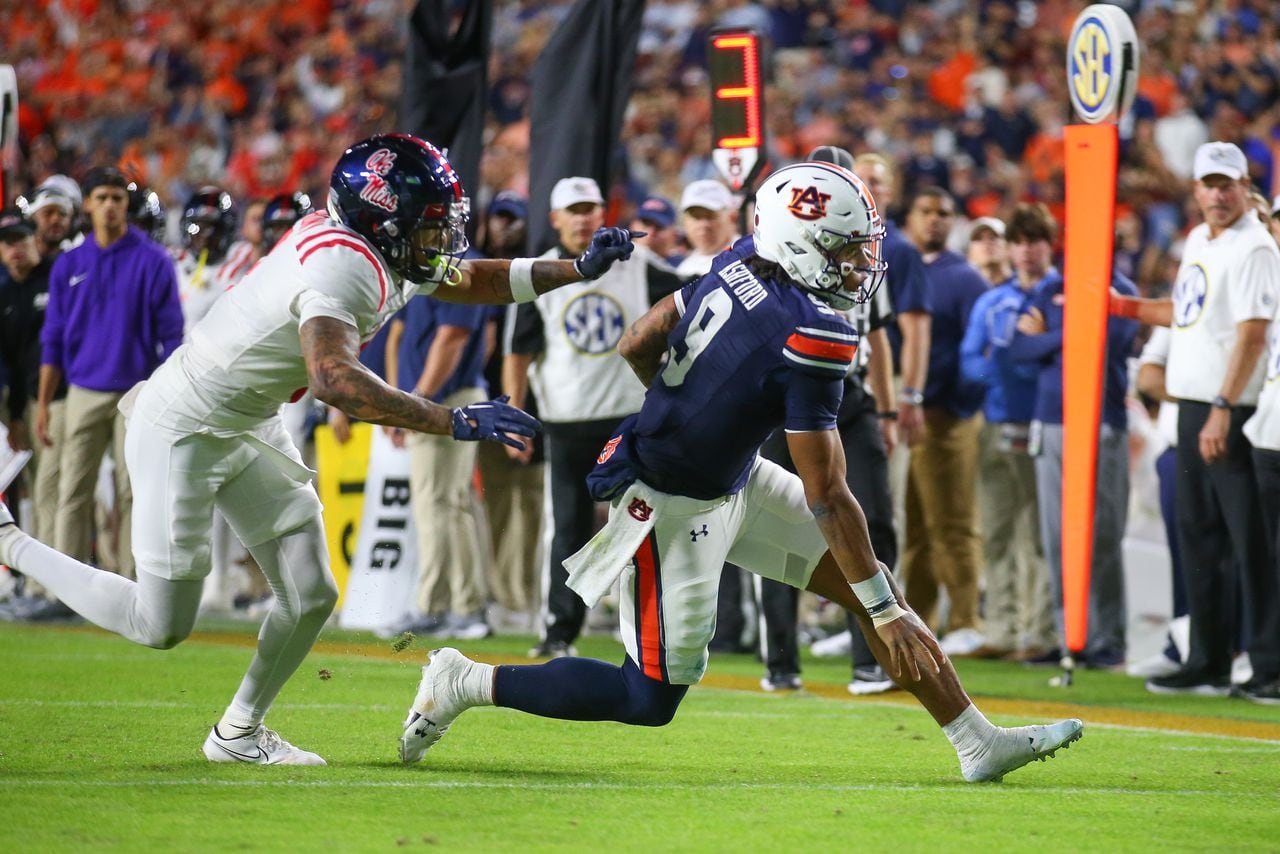Why Robby Ashfordâs second transfer could help set a precedent after court ruling
Robby Ashford is transferring again.
The Hoover native came to Auburn after two years where he did not play at Oregon. He became Auburn’s starting quarterback partway through the 2022 season and wound up losing a quarterback battle in 2023 to Michigan State transfer Payton Thorne. His role gradually diminished week by week as his second season with Auburn went on.
His decision to enter the transfer portal Friday does not come as much of a surprise, but it does come with some questions on his future eligibility — and how a court ruling earlier this week could impact it.
Under the most recent NCAA transfer rules, players are allowed one so-called “free” transfer as an undergraduate student — meaning they can play immediately at their new school. They can transfer with immediate eligibility a second time as a graduate student. But by the letter of the law, if a player transfers a second time before they graduate, they must sit out one season.
Ashford may be entering the portal on the precipice of the rule changing.
But playing during these two weeks will count as a year toward the player’s eligibility, the NCAA said.
Ron Rychlak, a law professor at Ole Miss who serves as the school’s Faculty Athletics Representative and is the secretary of the SEC Executive Committee, said he would highly advise against a two-time transfer playing during the restraining order.
Rychlak said a player could hypothetically transfer and enroll during the 14 days after the ruling and suit up for their new school during that time. But that’s unlikely to happen to most transfers.
That certainly doesn’t work in Ashford’s case.
In terms of his athletic eligibility, Ashford is listed as a sophomore. But academically, Ashford just finished the fall semester of his senior year and has not yet graduated.
It means a finalized ruling in this court case could greatly impact Ashford’s ability to transfer. Rychlak said a player in Ashford’s situation is essentially taking a gamble that there will be a finalized rule allowing immediate eligibility for a two-time transfer.
That permanent decision would have to come from the NCAA changing its policy or a final court ruling at the end of this or some other related case. The current restraining order creates a path to a long-term change, but that is no guarantee. Allowing immediate eligibility would further move a transfer portal with ever-loosening rules to look more like free agency.
“You start to ask: Is the rule worth enforcing,” Rychlak said.
Otherwise, Ashford has two remaining years of eligibility remaining. If he has to sit out next season, that still counts as a year burned. He can get a waiver to play next year, but Rychlak said waivers are becoming harder to get because of looser transfer portal rules.
Rychlak also suggested a player in Ashford’s position could enter the transfer portal, but doesn’t have to make a decision to change schools ahead of graduating.
Should the rules under the current restraining order because the law, it could lead to significantly more transferring freedom. A player could transfer three times without penalty — twice before graduating and once after. It could mean three schools within four-to-five years.
How the court’s decision impacts Ashford and other transfers to come will be telling on the future of player movement.
Matt Cohen covers Auburn sports for AL.com. You can follow him on X at @Matt_Cohen_ or email him at [email protected]
